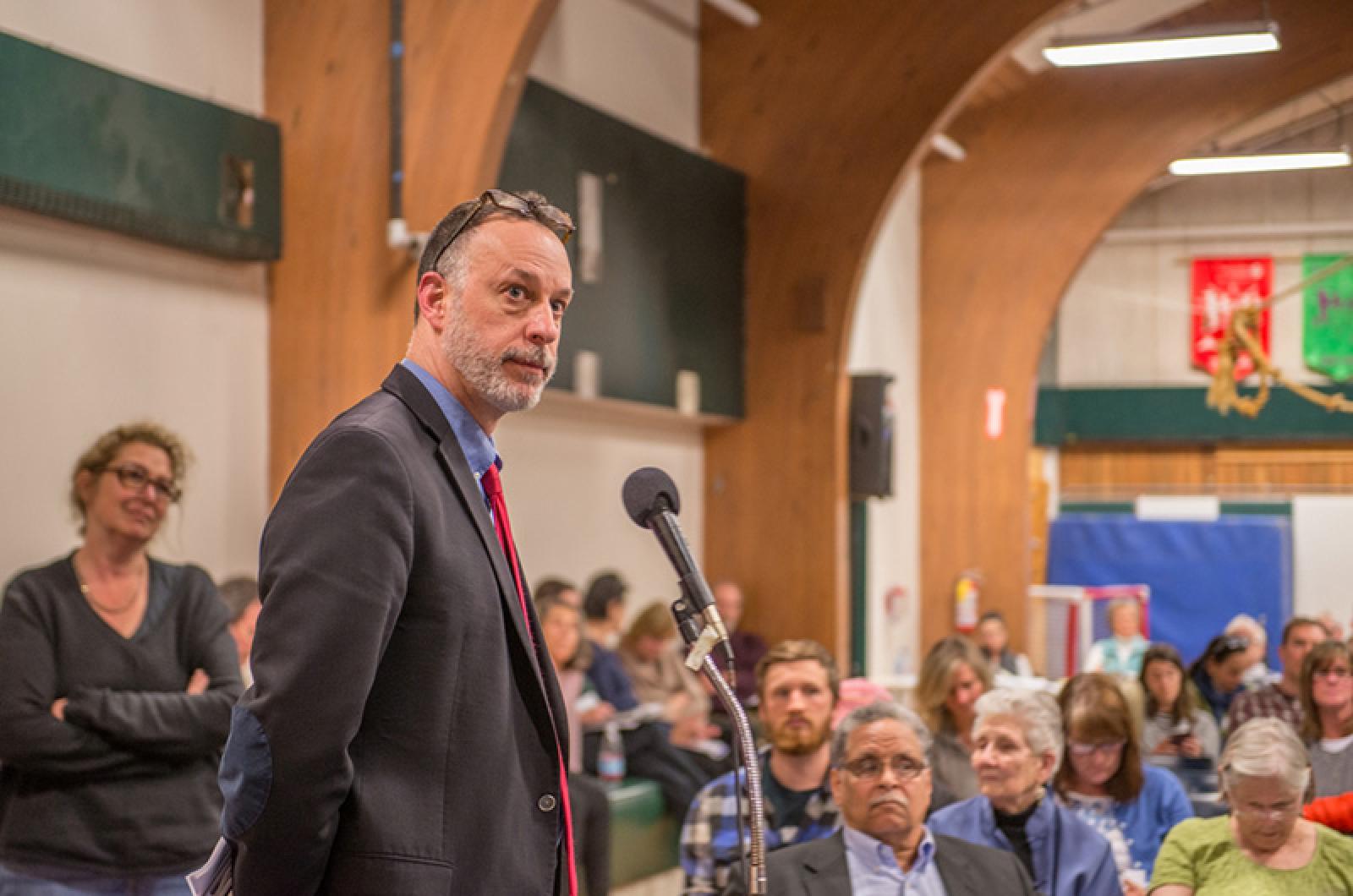It’s been a busy spring for Vineyard schools superintendent Dr. Matthew D’Andrea, who has been stumping at town meetings from Edgartown to Aquinnah seeking support for two major capital projects at the regional high school.
Now with final approval in hand from five Island towns, a multi-million-dollar overhaul of athletic fields at the Martha’s Vineyard Regional High School is ready to begin. The next steps are expected to include a review by the Martha’s Vineyard Commission, followed by a $6.7 million fundraising campaign to pay for phase one of the project, according Mr. D’Andrea.
In a wide-ranging interview with the Gazette last week, the superintendent reiterated that there are private donors ready to come forward to pay for the field project. But beyond that he was evasive about the details, saying that he could not specify who the donors are “because the donors don’t want us to,” until the project clears the review by the commission.
“What we want to do is get to the point where . . . this is what the project’s going to look like, and we have the construction documents, and the commission says, go ahead and do it. And then we will fundraise,” Mr. D’Andrea said.
Meanwhile, the fate of a much larger $1.4 million feasibility study to eventually renovate or replace the aging high school building remains in limbo after failing to gain approval at the Oak Bluffs annual town meeting in April. Funding for the feasibility study needed approval from all six towns. In Oak Bluffs the vote to reject the spending was led by town school committee members who are unhappy about the regional funding formula and want to change it.
Mr. D’Andrea said he has already assembled a committee to re-evaluate the funding formula. And he said he remains optimistic that the feasibility study can gain approval, especially if the high school is accepted into the Massachusetts School Building Authority program, a state program that provides significant reimbursement for public school building projects.
The high school has been rejected by the MSBA four times. A new application was filed in April, with an answer expected by December, Mr. D’Andrea said.
“My conversations with MSBA, they’ve indicated to me that we’re close,” he said. “The ideal scenario for me would be that we get into MSBA in December and then all we have to do is go back to Oak Bluffs and get them to support the [feasibility study] project. And then we can go forward.”
He said any building project at the high school will likely take five to seven years to complete. He acknowledged that the need has grown dire.
“We have a failing HVAC system. It’s well beyond its useful life. The building envelope has significant needs. We have a hot water tank that is . . . 60 plus years old that provides hot water to the whole building,” he said. “There’s just a tremendous amount. We have a leaky roof. A building project has to happen.”
With so much in front of voters this year, Mr. D’Andrea acknowledged that the process has been confusing at times.
“It all kind of came at the same time, so that made it more confusing,” he said.
As for the athletic fields overhaul, after a yearslong process that has involved bitter debate over grass versus artificial turf and two opposing community groups, each offering to pay for new fields, Mr. D’Andrea said he is happy with where the project has ended up.
He admitted mistakes were made.
“If I knew what I knew now would I do things differently back then? Yes,” he said. “But what I knew back then, I did what I thought was best. And the fact that we are where we’re at right now, I think we’re in a good place. And you know, I think it’s unfolding in the way it should unfold.”
Four years into the job, he offered an upbeat view on the state of the public schools on the Island.
“I think they’re in a very good . . . state,” he said, citing graduation outcomes and strong MCAS scores. “I feel we give kids a solid education and great opportunities.”
He cited health and wellness and school safety as two of his priorities, and said classroom basics remain a primary focus.
“My priorities this year are I want to focus on our instruction. And I’ve been working with the leadership team on looking at . . . the instruction, the focus of our instruction, the strategies that we’re using. I’ve always been a strong believer in the importance of writing: learning to write and communicate in writing effectively, reading for understanding, being able to process information and develop an argument,” he said. “These are the things I really want us to be focusing on with our students: being able to think critically, do research, develop and argument.”







Comments (2)
Comments
Comment policy »